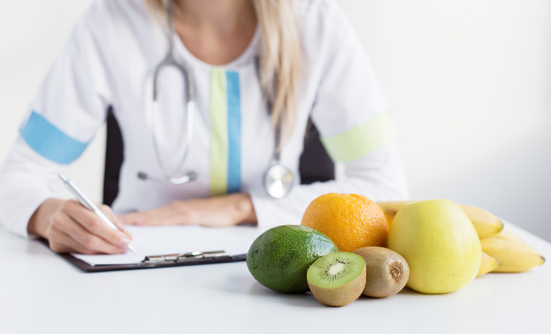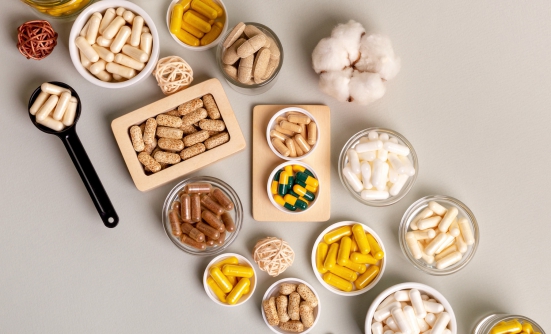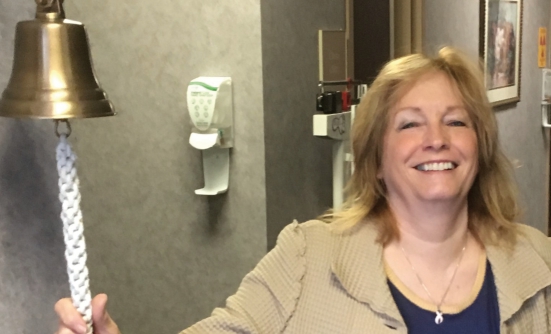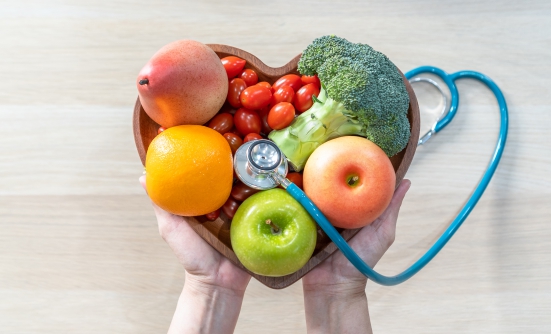Eating can be a struggle during cancer treatment. Staying well-nourished and maintaining a healthy body weight can help you with everything from fighting fatigue to recovering faster. Unfortunately, many common treatment side effects make it difficult to get enough nutrients. And because your body is under extra stress, it is even more important to get enough nutrients to support your health.
Many people don’t realize that providing the body with the protein and calories we need at regular times throughout the day can be as important as taking medications.
Benefits of Proper Nutrition During Cancer Treatment
- Increases your energy and endurance
- Prevents muscle loss and wasting, and helps you maintain your strength
- Builds tolerance to better withstand the effects of treatment and stress, which can mean fewer treatment delays because of weight loss or low nutrient levels
- Reduces infections and hospital stays
- Speeds recovery
How Much Should I Eat?
Your goal should be to have something to eat or have a nutritional drink every 3 hours, for a total of 4 to 6 “mini meals” throughout the day. Keeping your meals small keeps you from getting overwhelmed or feeling too full, especially when you’re feeling tired, or if you don’t have an appetite.
Because everyone’s nutritional needs are unique, the size and frequency ofmini meals can vary from person to person. Working with a registered dietitian is a great way to ensure you’re meeting your individual needs.
Tips for Eating 4 to 6 Mini Meals Daily
- Remind yourself that eating can be as important as taking your medications. You would not skip your medication, so do not skip your meals
- Set an alarm for every 3 hours to remind you when it’s time to eat
- Store a variety of grab-and-go foods so you don’t have to do extra work or preparation when it’s time to eat. Some good examples include nuts, fruit, single-serving Greek yogurts, cheese sticks, and canned soups
- Make a snack basket of your favorite foods, and keep it out where you will see it as a reminder to eat
- Keep a snack basket or a cooler next to you if you’re in bed or on the couch so you don’t have to get up when it’s time to eat
- Freeze leftover food in single-sized portions so you simply have to reheat them
Remember: it’s okay to drink your nutrition! Try a smoothie or an oral nutritional supplement in place of a mini meal if you’re not up to eating
What If I'm Feeling Nauseous?
Even though it may be the last thing you want to do, getting food in your stomach can actually help ease nausea. Staying hydrated also helps keep nausea at bay. Try these tips to help you get your food and fluids:
- Aim for 6 to 8 very small meals, and at least 64 ounces of fluid every day
- Choose bland, easy-to-digest snacks, such as saltines, baked chicken, Cream of Wheat, or chicken noodle soup
- Avoid spicy, fatty, greasy, and strong-smelling foods
- Consume food and drinks that are room temperature or cooler
- Some foods that help sootheyour stomach include salty snacks,such as saltines, potato chips, pretzels,chicken noodle soup, or broth
- Ginger-based drinks or snacks, such as ginger ale, ginger tea, candied ginger, ginger chews, or fresh ginger in recipes
- Lemon-based drinks or snacks, such as lemon water, lemon candies, or lemon tea
What If Nothing Tastes Right?
Taste changes can be a major barrier to eating. This is when it’s important to remember that food is as important as medicine, and to view eating not as pleasure but as necessity. It may not taste as good or be as fun to eat, but it must be done.
Try these tips to help:
- Try cool, moist foods, such as frozen melon balls or grapes
- Rinse your mouth with a mixture of warm water, salt, and baking soda before eating to help reset your taste buds
- Use plastic silverware to avoid metallic taste
- Suck on lemon or peppermint candies throughout the day
- Some people find that red meat tastes bitter; choose other sources of protein, such as chicken, fish, eggs, beans/legumes, nuts, or nut butter
If your food tastes bland:
- Choose tart foods, such as lemon wedges, lemonade, citrus fruits, vinegar, or pickled foods
- Add extra flavor to foods with spices or sauces, such as onion, garlic, chili powder, basil, oregano, rosemary, mint, ketchup, mustard, or barbeque sauce
- Choose fresh vegetables over canned or frozen vegetables
- Add a small amount of honey or sugar to bring out flavor
What If I Have Mouth Sores?
Mouth sores are common with chemotherapy and can be a real pain (no pun intended). If you have mouth sores, try these tips:
- Avoid dry, coarse, and rough foods
- Avoid alcohol, citrus, spicy foods, and acidic foods, such as tomatoes
- Choose soft, bland foods served at room temperature
- Try pureed fruits and vegetables, puddings, custards, cream soups, or Crock-Pot meals
- Moisten foods with broth, sauces, gravies, or milk
- Drink smoothies, milkshakes, or oral nutritional supplements to replace meals or snacks
- Suck on frozen fruits or popsicles to soothe your mouth
- Rinse your mouth with a mixture of warm water, salt, and baking soda 2 to 3 times every day
Remember: Medications are available, and sometimes necessary, for managing treatment side effects, especially nausea, mouth sores, diarrhea, and constipation. It is always important to speak with your healthcare team about your side effects and take your medications as recommended.











